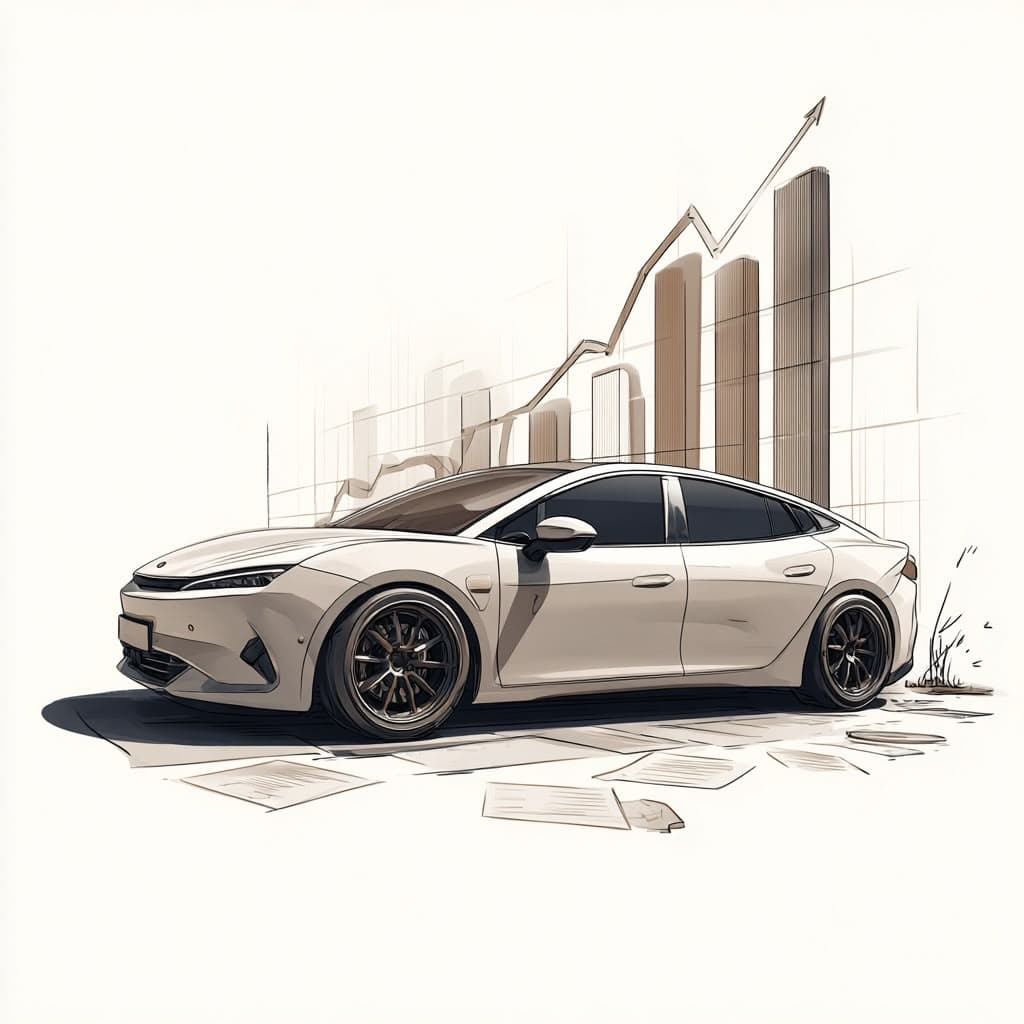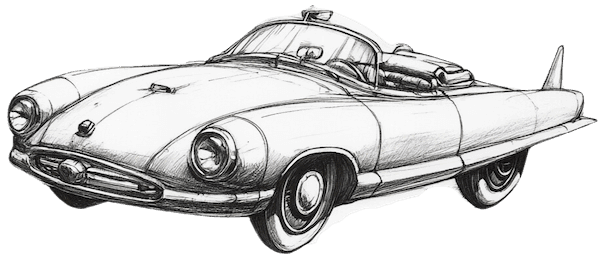Nissan Leaf Battery Upgrade Guide
What are the options for replacing the battery in a Nissan Leaf?

Nissan Leaf's battery issue
There are over 25,000 Nissan Leafs in NZ (and counting).
The LEAF is one of the first mass-market EVs, and its batteries degrade more than those of newer-generation EVs (a lack of active cooling is the main culprit).
Earlier models (24 kWh and 30 kWh) suffer from more degradation.
Note: Newer 40 kWh Leafs (2018-) are not following the same degradation curve.
Telematic data from FliptheFleet shows a flattening off of degradation (consistent with other modern NMC batteries).
However, it's very important to try to charge Leaf batteries to 75%-80% - only charge to 100% when needed -- this will prolong battery life [6]
Battery lifecycle
-
New battery in a Leaf with maximum range.
-
Battery degrades until no longer viable (range gets too low).
-
Battery removed and modules sold on the aftermarket for reuse as an energy storage system.
-
Replacement battery installed in Leaf (either from existing Leaf, completely new battery, or all modules replaced).
-
Once the reused modules are no longer viable, batteries must be recycled to obtain valuable metals.
Assessing Leaf battery health
Battery health can be estimated by looking at the dashboard bars.
This doesn't provide much detail, so a tool called Leaf Spy is used.
Interpreting Leaf Spy
There are a few things to look for.
-
SOH - State of Health (%)
This number shows the battery's capacity compared to when it was new. -
QC - Quick Charges
Should be called Number of DC Fast Charges.
Lots of DC charging can mean a lot of heat for the Leaf battery.
Note that LeafSpy is not the perfect battery diagnostic tool.
Potential battery issues in Leafs arise from situations where the battery has reached higher temperatures.
Example: If the car was driven continuously (e.g. full battery cycle), then fast-charged, then driven etc.
The companies listed below can offer a more comprehensive diagnosis (useful if buying a Leaf from a private seller, or if looking to replace the battery).
Battery removal and replacement
There are no large-scale systems exist for LEAF battery replacement in New Zealand.
Enough vehicles are being scrapped (i.e. written off by insurers) to ensure a steady supply of batteries that can be installed into other vehicles.
Contact one of the companies listed below that can do the installation.
DIY? Dala's EV repair (European) has open-sourced a lot of info about battery upgrades. See the wiki here, videos here - including an upgrade to a 62 kWh battery.
How much does an EV battery replacement cost?
It depends on the battery you are buying, but installation costs should be around $500.
New Zealand businesses that change Leaf batteries
-
Kelly's Automotive (Whangarei) - service and repairs for various EVs.
-
iTech Automotive (Auckland) - will do battery replacements on Leaf and Nissan e-nv200.
-
EV Parts NZ (Auckland).
-
Blue Cars (Auckland) can provide new modules.
-
Collins Automotive (Hamilton) - battery repair and replacement.
-
Tauranga Cars (Tauranga) - will organise delivery of replacement and carry out battery change.
-
DriveEV (Taupo) - dedicated workshop for battery repair and replacement (Leaf + other EVs).
-
Saxton Autos (Wellington).
-
EVs Enhanced (Christchurch) - battery swaps and repair.
-
EV-lution (Dunedin) batteries for home and Nissan Leaf battery replacements.
-
Control Focus (Dunedin)
Used Leaf batteries
NissinKing Partsworld - Secondhand Leaf batteries range in price from $2,000 - $13,000. They also advertise some batteries on Trademe.
Recommendations: How do I upgrade the battery?
Contact one of the companies above.
They have better diagnostic tools (than LeafSpy) to ensure your battery replacement is in good condition.
While you can buy a used battery directly from Trademe or a wrecker, more risk is involved (in assessing the battery condition).
Thinking of importing a battery? BUYER BEWARE ⚠️
Several Chinese distributors offer to export Leaf batteries to New Zealand. Even if these companies are legitimate (and not scams), there are major issues with after-sales support.
The Consumer Guarantees Act would not cover the purchase, and even if the company offers a 'warranty', this would be extremely difficult to enact.
If faulty cells were discovered in the battery pack, it would be at the buyer's cost to dismantle the battery and fit replacement cells (even if the company actually shipped over any replacement parts).
Will insurers cover a replacement battery?
This is a grey area. If $10,000 is spent on a new battery - will insurers increase their cover by that much? If you have an agreed value policy, then check your insured amount.
Speak to your insurer before replacing the battery.
Second-life of used Leaf batteries
There is a healthy aftermarket for used Leaf battery modules (repurposed as home storage). This appears to be in the domain of the DIY hobbyist.
There are at least two commercial operations using old batteries in NZ:
-
Counties Energy has a functioning 240 kWh battery (made from 18 Nissan Leaf batteries). The battery charges during low-demand off-peak times and powers the two EV chargers at the site.
-
Z Energy has implemented a battery-based charger from Zenobe.
Scrapping and end-of-life of Leaf batteries
A full product stewardship system for batteries is under development in NZ. It will be like a battery 'passport' that tracks the battery throughout its life.
It is unlikely that a lithium-ion recycling facility will ever exist in NZ, so all end-of-life batteries must be sent offshore. Renewable Metals in Australia is working toward a Lithium recycling facility in NSW.
New Zealand's Phoenix Recycling can handle end-of-life Nissan Leaf batteries.
They take the whole pack and ship it via one of their export hubs (Auckland or Christchurch), which is then sent to Japan or South Korea for recycling. Expect the cost to be around $700 (last checked Jun 2024).
New Zealand battery recycling
-
Upcycle (Auckland) accept battery waste.
-
Echo (formerly Computer Recycling and iTrecycla) are doing the bulk of e-waste recycling in NZ.
-
Phoenix Recycling has nationwide pickup points for batteries (and will recycle solar panels).
-
InfinitEV is implementing a full lifecycle solution for EV batteries.
Australia
-
Brisbane company SL Batteries specialises in custom builds and reuse of old EV batteries.
-
Perth startup Renewable Metals mission is to recover "the valuable materials in lithium batteries including lithium, nickel, cobalt, copper, manganese and graphite."
Elsewhere
-
Redwood Materials is actively recycling Li-ion batteries (see trial results).
-
Ascend Elements with a patented hydro-to-cathode process.
-
Nth-cycle uses new technology to make battery recycling part of any recycling program.
-
Li-cycle has plants in Europe and North America: "up to 95% recycling efficiency rate to return valuable materials in lithium-ion batteries back to the supply chain".
-
Norway now has the Hydrovolt factory up and running - capable of recycling that country's entire end-of-life battery market.
-
Volvo has partnered with CATL to recycle all old batteries used in Volvo cars.
-
Brunp handles recycling of CATL batteries in China.
Getting the facts on battery health
There is a need in NZ for a comprehensive battery health service, that covers all makes and models.
Companies like Altelium in the UK provide this service. Every EV sold secondhand should come with a certificate showing the State of Health of the battery.
References
See the list of current permits to export hazardous waste from New Zealand.
-
See more at Forbes and further reading at MIT Review.
-
* 24 and 30 kWh LEAFs have no WLTP range, as they predate the WLTP cycle. However, an estimate using the US EPA range of the 24 kWh is 84 miles (135 km). A rough estimation of WLTP gives a 151 km range.
-
Original Leaf battery chemistry is a Ni-Mn (2010+), then Ni-Co-Mn (2017+).
-
The challenges of a circular battery economy - Latitude Media
-
McKinsey - Battery recycling takes the driver's seat
-
Gao, W., Cao, Z., Fu, Y., Turchiano, C., Kurdkandi, N. V., Gu, J., & Mi, C. (2024). Comprehensive study of the aging knee and second-life potential of the Nissan Leaf e+ batteries. Journal of Power Sources, 613, 234884. https://doi.org/10.1016/j.jpowsour.2024.234884
